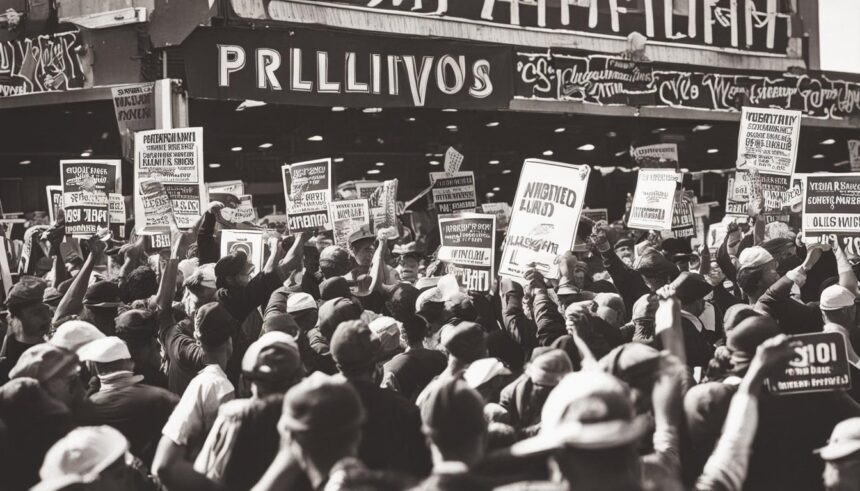Workers from two Portillo’s food production facilities in Illinois are moving towards unionization, highlighting a significant trend in labor rights movements in the U.S food industry.
In a notable development in the U.S. labor movement, workers from two Portillo’s food production facilities in Addison and Aurora, Illinois, have taken significant steps towards unionization. This move underlines an ongoing commitment among American workers to seek fair representation and improved working conditions, particularly in the food industry.
The efforts to unionize at these facilities began over a year ago when Addison workers first voted overwhelmingly in favor of representation. Following a formal demand for recognition by the company on April 5, 2024, their Aurora counterparts filed for an election set to take place on April 30, 2024. The unionization push has seen considerable solidarity, with workers from both locations supporting each other’s efforts amid resistance from Portillo’s.
This weekend rally drew crowds of over 200 allies, highlighting the collective endeavor between the two facilities and the broader community’s support. Anahi Tapia, an organizer with Ironworkers Local 853, emphasized the inspirational nature of the unity between the workers at the two facilities, noting how the movement grew in Addison and ignited similar activism in Aurora, despite significant opposition from the company.
Hank Hunsell, General Organizer at the Iron Workers Union, criticized Portillo’s for attempting to block the unionization efforts. According to Hunsell, the company tried to undermine the process by requesting a rerun election and filing objections against the union vote. However, these objections were dismissed by the National Labor Relations Board (NLRB) as lacking merit, and further appeals by Portillo’s were unsuccessful. The NLRB has affirmed the fairness of the elections, and Hunsell urges Portillo’s to engage in negotiations with the workers.
The Iron Workers Union, which represents these workers, is an umbrella organization for 130,000 members across North America. These members are skilled in various construction sectors, including bridge-building, structural steelwork, and clean energy projects. Their involvement in the unionization efforts at Portillo’s signifies a broadening of labor organization efforts taking root in less traditionally unionized sectors like fast food production.
The push for unionization at Portillo’s is part of a wider trend within the U.S. where workers across different industries seek greater protection, better working conditions, and fair wages. It reflects a resurgence in labor union activities, particularly in sectors that have not historically been heavily unionized, signaling a significant shift in the labor landscape. Moreover, these movements are happening amid broader discussions around labor laws and workers’ rights in the American economy, pointing toward potentially transformative changes in the labor market.
As the date for the Aurora election approaches, it remains to be seen how the situation will unfold. Yet, the determination of the workers at both Addison and Aurora, backed by union support and community solidarity, indicates a robust fight for their rights is ahead. This scenario represents not just a local or industry-specific issue but also a poignant chapter in the ongoing narrative of American labor relations.





